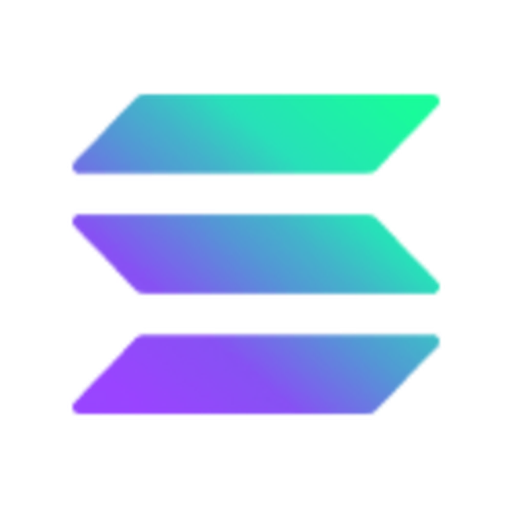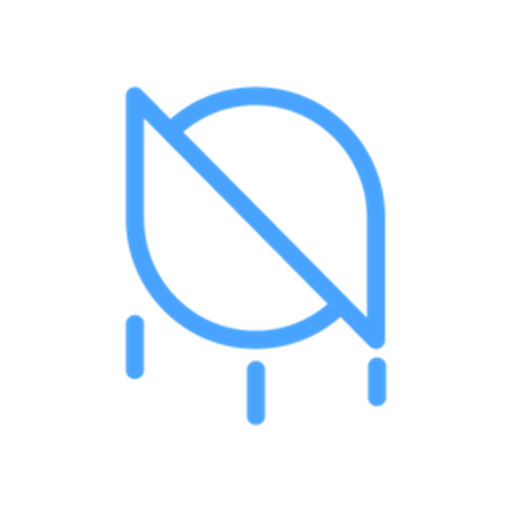Solana vs Ontology Gas – Price, Market Cap & Performance Compared
Which coin performs better – Solana or Ontology Gas?
We compare the current price (211.95 $ vs 0.21201 $), market cap (115 139 188 576 vs 87 431 889) and all-time high (293.31 vs 4.39).
Find out which one stands out right now!
Solana is currently trading at 211.95 $, while Ontology Gas stands at 0.21201 $. These cryptocurrencies differ not only in price but also in market presence.
The market cap of Solana is around 115 139 188 576, and Ontology Gas has about 87 431 889. Their respective all-time highs are 293.31 for Solana and 4.39 for Ontology Gas.
Daily trading volume and the 24h price change (-1.06296 % vs 5.10913 %) also offer key insights.
Compare all metrics now and see which coin fits your investment strategy best!
Solana
Solana is an advanced blockchain platform that has quickly gained traction due to its high-speed and low-cost transactions. Its architecture is designed to handle thousands of transactions per second, which positions it as a strong competitor in the decentralized finance space. As developers continue to build on its network, Solana is poised to support a diverse range of applications, making it a significant player in the cryptocurrency ecosystem.
more informationOntology Gas
Ontology Gas serves as a vital utility token within the Ontology ecosystem, facilitating transactions and supporting decentralized applications. Designed to enhance the functionality of the Ontology network, it plays a crucial role in governance and incentivizing participation from users. As the demand for decentralized solutions grows, Ontology Gas is positioned to play an increasingly significant role in shaping the future of digital identity and data sharing.
more information

|

|
|
|
|
General Information |
|
|---|---|
|
Title
Solana
|
Title
Ontology Gas
|
|
Symbol
sol
|
Symbol
ong
|
|
Whitepaper
-
|
Whitepaper
-
|
|
Website
|
Website
|
|
Community
-
|
Community
-
|
|
Last Updated
2025-09-24 23:29
|
Last Updated
2025-04-29 01:58
|
Price Data |
|
|---|---|
|
Current Price $
211.95 $
|
Current Price $
0.21201 $
|
|
High 24h
216.29 $
|
High 24h
0.21274 $
|
|
Low 24h
206.33 $
|
Low 24h
0.20171 $
|
|
Price Change 24h
-2.27718 $
|
Price Change 24h
0.01031 $
|
|
Price Change % 24h
-1.06296 %
|
Price Change % 24h
5.10913 %
|
Market Data |
|
|---|---|
|
Market Cap
115 139 188 576
|
Market Cap
87 431 889
|
|
Total Volume
8 426 373 441
|
Total Volume
2 798 718
|
|
Market Cap Change 24h
-1 726 644 361
|
Market Cap Change 24h
4 257 230
|
|
Market Cap Change % 24h
-1.47746 %
|
Market Cap Change % 24h
5.11842 %
|
|
Return on Investment (ROI)
-
|
Return on Investment (ROI)
-
|
Supply and Availability |
|
|---|---|
|
Circulating Supply
543 390 185
|
Circulating Supply
412 609 354
|
|
Total Supply
610 459 596
|
Total Supply
1 000 000 000
|
|
Max Supply
-
|
Max Supply
1 000 000 000
|
Historical Data |
|
|---|---|
|
All Time High (ATH)
293.31
|
All Time High (ATH)
4.39
|
|
ATH Change %
-27.78745 %
|
ATH Change %
-95.16321 %
|
|
ATH Date
2025-01-19 11:15
|
ATH Date
2018-09-28 10:22
|
|
All Time Low (ATL)
0.50080
|
All Time Low (ATL)
0.04242
|
|
ATL Change %
42 194 %
|
ATL Change %
400.23685 %
|
|
ATL Date
2020-05-11 19:35
|
ATL Date
2020-03-13 02:24
|
Solana
The Rise of Solana: A Deep Dive into the Blockchain Superstar
Solana (SOL) has emerged as one of the most prominent blockchain platforms in recent years, showcasing impressive growth and technological advancements. Known for its high-speed transactions and low fees, Solana has become a favorite among developers and investors alike. This article aims to explore the unique features of Solana, its historical performance, as well as its future prospects.
Key Features Setting Solana Apart
Solana's key selling point is its ability to process transactions at lightning speed compared to other blockchains. It utilizes a unique consensus mechanism known as Proof of History (PoH), which enables the network to handle thousands of transactions per second (TPS), a feat unmatched by many other blockchains. This innovation allows for scalability without compromising on speed or cost, making Solana an attractive option for decentralized applications (DApps) and decentralized finance (DeFi) projects. Additionally, the low fee structure further enhances its appeal in the crypto space.
Advantages of Solana
One of the main advantages of Solana is its scalability. As the demand for blockchain technology grows, the need for scalable solutions becomes more critical. Solana's architecture allows for rapid scaling, positioning it as a robust platform for future expansion. Furthermore, Solana boasts an active developer community that continuously contributes to its ecosystem, resulting in a diverse range of applications and services being built on the network. The high throughput and low transaction costs make it an ideal environment for developers, encouraging innovation across various sectors.
Challenges and Criticisms
No technology comes without its set of challenges, and Solana is no exception. One of the criticism often aimed at Solana is its level of decentralization. Critics argue that the network's reliance on a limited set of validators potentially undermines its decentralized ethos. Additionally, like other emerging technologies, Solana faced network outages in the past, raising concerns about its reliability and stability during high-stress periods of network activity.
A Look Back: Solana's Historical Performance
Solana's journey began in 2020 when it was introduced to the crypto world. Its price hit an all-time low (ATL) of $0.500801 in May 2020. The blockchain quickly garnered attention, and by November 2021, it reached an all-time high (ATH) of $259.96. Solana's price movements during these years reflect the broader market sentiment and growing interest in scalable blockchain solutions. Despite experiencing significant market volatility, including a notable price correction from its ATH, Solana has maintained a strong market presence.
Future Prospects of Solana
As we look to the future, Solana's prospects seem promising. Its growing ecosystem, coupled with continuous technological improvements, positions it well to capture a significant share of the blockchain market. The platform's focus on scalability and efficiency will likely drive more developers and projects to choose Solana as their preferred blockchain network. Furthermore, ongoing partnerships and integrations suggest a positive trajectory for Solana, allowing it to compete with other major blockchains in the years to come.
In conclusion, Solana represents a significant development in the crypto landscape, distinguished by its speed, scalability, and low-cost transactions. While the network faces inherent challenges that accompany any young and rapidly growing technology, the potential for innovation and adoption remains substantial. As Solana continues to evolve, it will undoubtedly be a crypto story worth following closely.
Ontology Gas
Ontology Gas (ONG): An Overview
Ontology Gas, denoted by the symbol ONG, is a native token of the Ontology ecosystem, designed to support decentralized applications (dApps) with essential functionalities such as transaction fees and performance incentives. As part of the Ontology Blockchain framework, ONG aims to facilitate better interoperability, scalability, and privacy in digital asset management.
Historical Performance of Ontology Gas
ONG has experienced significant fluctuations since its inception, with an all-time high (ATH) of $4.39 reached on September 28, 2018. This monumental peak was part of a broader market trend where many cryptocurrencies saw their prices surge. However, the crypto market is notoriously volatile, and Ontology Gas faced a downturn, currently trading at approximately $0.296. Notably, this price represents a staggering decline of over 93% from its ATH. Conversely, ONG witnessed an all-time low (ATL) of $0.0424 on March 13, 2020, which highlights its potential for recovery, as it has since gained over 597% from those lows.
Advantages of Using Ontology Gas
Ontology Gas brings several advantages to the table:
- Utility within the Ontology Ecosystem: ONG is essential for transaction fees on the Ontology Blockchain, enabling users to engage with dApps seamlessly.
- Staking Mechanism: Users can stake ONG to earn rewards, thus incentivizing long-term holding.
- Interoperability: Designed to facilitate cross-chain transactions, Ontology enables users to connect and interact with different blockchain ecosystems.
- Strong Development Team: Ontology is backed by a solid development team and strategic partnerships, enhancing its credibility and potential for long-term success.
Disadvantages and Risks
Like any cryptocurrency, Ontology Gas also faces its share of challenges:
- Market Volatility: The cryptocurrency market is highly volatile, and ONG’s price can be significantly affected by market trends and investor sentiment.
- Regulatory Concerns: As regulations around cryptocurrencies become more stringent globally, there might be implications for the functionality and adoption of ONG.
- Competition: The blockchain space is crowded with numerous projects aiming to solve similar issues, potentially hampering Ontology’s market share.
Future Prospects for Ontology Gas
The future outlook for Ong remains cautiously optimistic. With ongoing developments within the Ontology ecosystem, including improvements in governance, privacy features, and the expansion of its dApp ecosystem, there are catalysts that could drive interest and adoption. Initiatives aimed at enhancing DeFi capabilities and partnerships with enterprises for real-world applications may further bolster its utility and value as a digital asset.
Moreover, as the trend toward decentralization and blockchain technology continues to gain traction, Ontology appears well-positioned to capitalize on these trends, provided it navigates the competitive landscape effectively. By focusing on user experience, ease of access, and innovative solutions, ONG could reclaim some of its lost value in the coming years.
Conclusion
Overall, Ontology Gas presents a compelling case for both investors and users within the blockchain space. While it has faced considerable challenges, the underlying utility, strong community support, and ongoing development could sustain its relevance in the constantly evolving cryptocurrency landscape. As always, investors should conduct thorough research and consider their risk tolerance when engaging with any digital assets.

